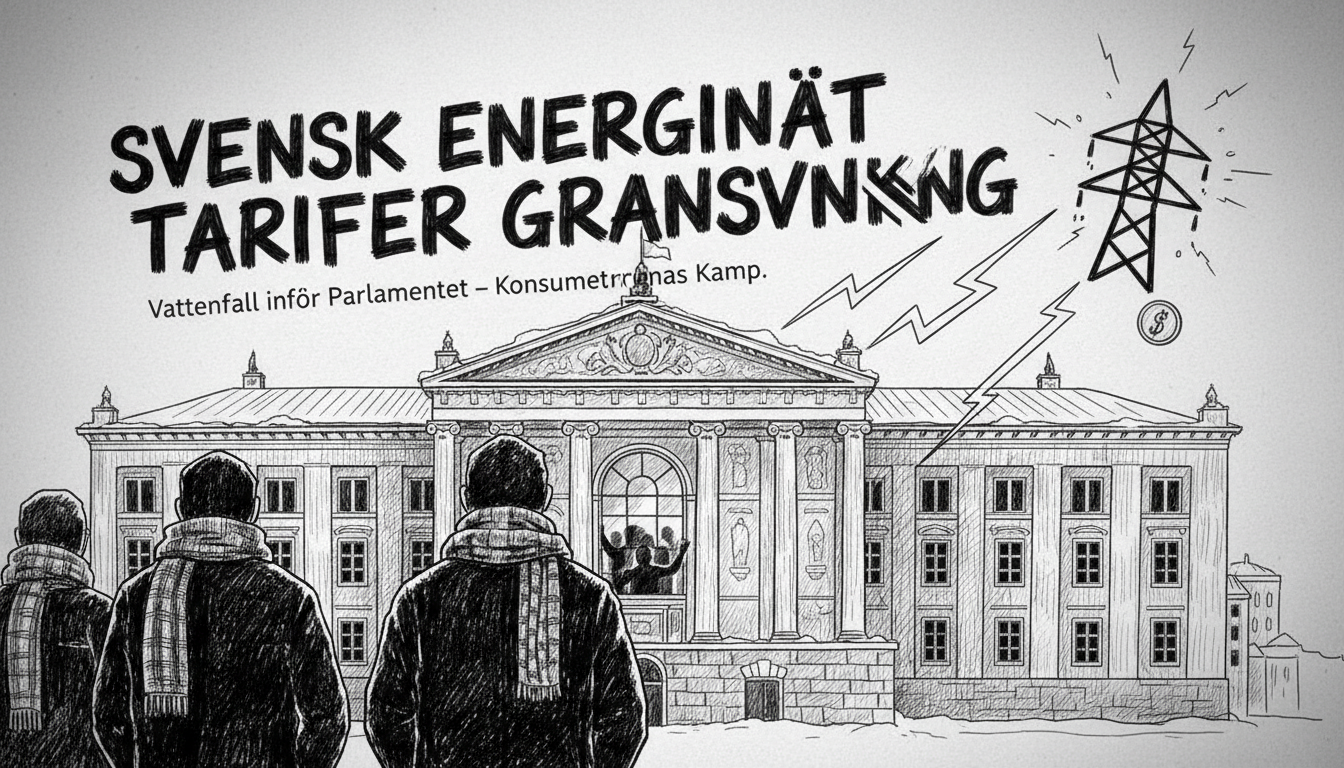The Swedish government confronts renewed parliamentary pressure as the Left Party summons state-owned energy giant Vattenfall to explain substantial electricity network fee hikes. Riksdag decisions now face critical examination amid growing consumer discontent.
Birger Lahti, energy policy spokesperson for the Left Party, declared that Vattenfall's management must appear before the parliamentary industry committee. He stated that the company needs to justify repeated annual increases that burden households across Sweden. Lahti emphasized the disproportionate impact on vulnerable consumers during the current economic climate.
The proposed fee adjustments represent approximately 1,500 Swedish kronor annually for many households. Vattenfall customers face fourteen percent increases while Ellevio implements roughly ten percent hikes. These changes take effect at the turn of the year without consumer alternatives since electricity network providers operate as regional monopolies.
Lahti's position challenges Stockholm politics by questioning fundamental market structures. He advocates for expanded state ownership within the electricity network sector to increase price competition. The spokesperson noted that Vattenfall consistently generates substantial annual profits despite claiming financial necessity for rate increases.
The political confrontation extends beyond corporate accountability to ministerial responsibility. Lahti suggested that Energy and Industry Minister Ebba Busch should also provide parliamentary testimony. He argued that government policy Sweden must address systemic issues rather than accept routine price escalations.
Vattenfall and Ellevio defend their positions by citing necessary infrastructure investments. Both companies maintain that modernizing Sweden's electrical grid requires substantial capital expenditure. They contend that these improvements ultimately benefit consumers through enhanced reliability and capacity.
This parliamentary summons reflects broader tensions within Swedish energy policy. The government balances infrastructure demands against consumer protection concerns. Previous Riksdag decisions have attempted to navigate similar challenges without complete resolution.
The current situation highlights fundamental questions about public versus private ownership of critical infrastructure. Sweden's electricity market structure creates natural monopolies that limit consumer choice. This reality places additional responsibility on regulatory oversight and parliamentary scrutiny.
Minister Busch's office has not yet issued formal commentary regarding the committee summons. The Sweden Democrats have deferred to government leadership on this matter without providing specific positions.
Historical context reveals similar parliamentary confrontations during previous energy price fluctuations. The Riksdag building has hosted numerous debates about balancing corporate autonomy with public accountability. These discussions typically intensify during periods of economic pressure on household budgets.
International observers should note that Swedish electricity costs include separate components for power generation and network distribution. This structural distinction means consumers cannot switch network providers regardless of dissatisfaction with service fees. The current controversy focuses exclusively on distribution costs rather than energy production expenses.
What practical outcomes might emerge from this parliamentary review? Committee hearings could influence future regulatory frameworks or prompt ministerial intervention. The government maintains ultimate authority over state-owned enterprises like Vattenfall despite their operational independence.
The situation demonstrates how Riksdag decisions can shape market dynamics through oversight rather than legislation. Parliamentary committees possess substantial investigative powers that can pressure both corporate and government actors. This institutional balance represents a cornerstone of Swedish democratic governance.
Consumers await concrete solutions rather than political posturing. The fundamental question remains whether current government policy Sweden adequately protects public interests while ensuring necessary infrastructure development. This balance requires careful calibration between competing priorities.

